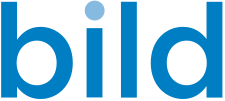UK PBS Alliance Webinar: Measuring the success of PBS
As a data driven approach, good PBS practice should include robust and effective ways to measure and evaluate the outcomes of a person’s goals. This helps us know if we are making a difference, whether the impact of PBS results in improvements for the person in quality of life, increases in new skills, and reductions in behaviours of concern. PBS uses several data methods, from direct recording, structured checklists/questionnaires, and indirect methods (e.g., incident reports), each with benefits and limitations.
In the webinar, we will learn principles of PBS outcomes measurement and present a simple taxonomy for selecting PBS outcome tools, with examples. We focus on tools that are feasible to implement in everyday practice and are easy for carers to complete, have evidence behind them, and are ethical.
We are especially interested in tools that can be used directly with people who we service, and methods that give greatest opportunity for people with a range of abilities to report their own views about how they are faring in accomplishing their goals. There is a paucity of resources of this kind, however. One of the advances for PBS will be to ensure the strengthened inclusion of the person themselves in reporting their outcomes, for a person’s own perspective of their life is what we are interested in ideally.
This webinar will be free for anyone to join live, and the recording will be available to Bild Members. Find out more about Bild Membership here>
This webinar will be presented by Dr Nick Hagiliassis
Dr Hagiliassis is a consultant psychologist with over twenty years’ work in the support of people with disability, their families, and the communities in which they live. He is the Clinical and Research Lead with Scope’s Positive Behaviour Support (PBS) service, and a clinician in private practice. Nick has supported and supervised the practice of students, practitioners and probationary psychologists and is a Psychology Board approved supervisor. He has co-authored peer reviewed journal papers, chapters, books, practice guidelines and resources, and presented at conferences nationally and internationally in the areas of intellectual disability mental health, challenging behaviour and professional practice.
